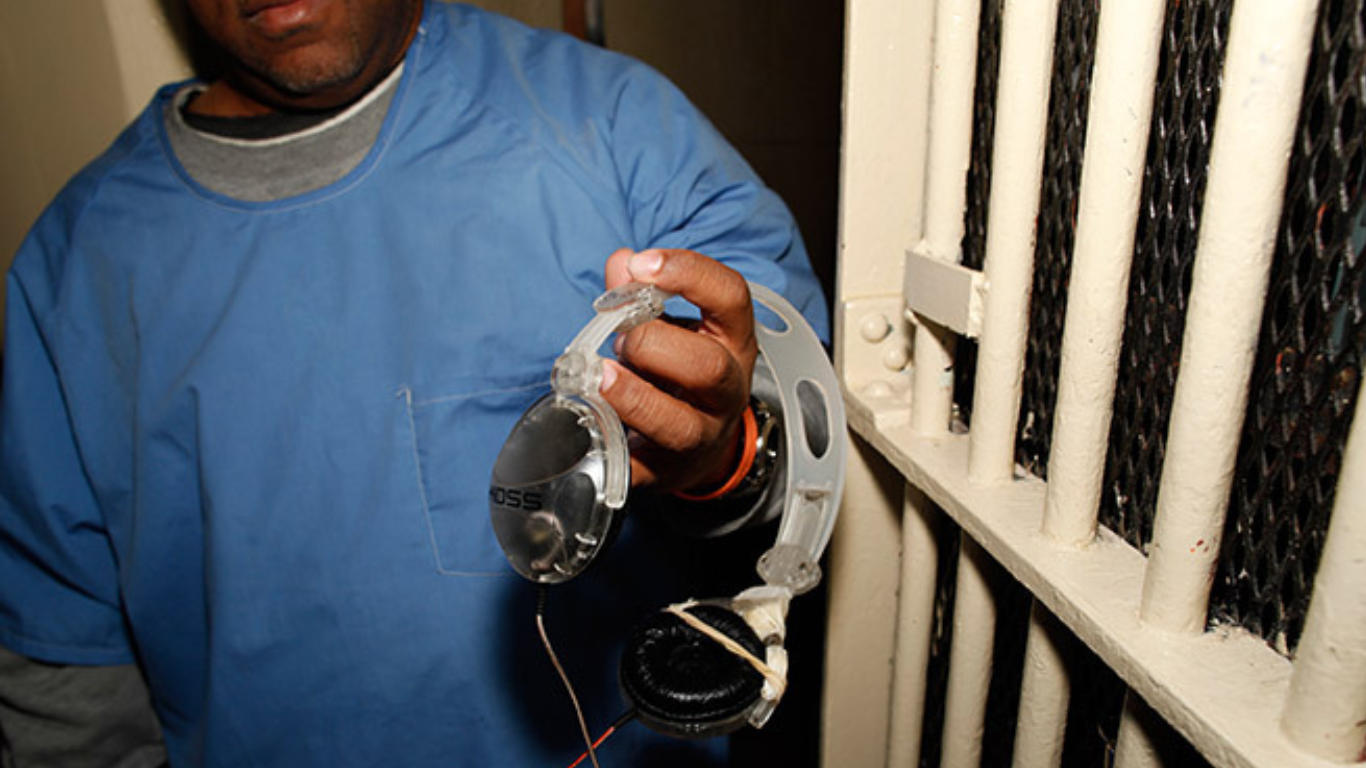Koss Corps Headphones For A 'Captive' Audience

Milwaukee-based Koss Corp. innovated the concept of a ‘captive’ market with a new line of headphones tailored for the expanding U.S. prison population in the early 2000s.
“When you were living with somebody else in a cell, private listening was even more crucial than in a family environment,” said John Koss Jr., the vice president of sales.
Prisons became a lucrative market for Koss, generating about $1.5 million in annual sales, contributing to the company’s total sales of $33.2 million the previous year. The correctional facility market grew, with Wisconsin’s prison population increasing by 65 percent between 1990 and 1998, and the federal prison population experiencing a 106 percent increase during the same period, according to the U.S. Bureau of Justice Statistics.
While Koss had supplied headphones to state and federal prisons before, the company crafted a distinct headphone line exclusively for the prison market.
The newly crafted headphones featured a transparent plastic design to prevent concealment of contraband, addressing a common concern among prison officials.
Inmates using headphones and electronic devices to hide forbidden items had led many maximum-security prisons to impose stringent restrictions on products available in their commissaries.
“It was a growing market, but it was also tightly regulated. Inmates were allowed to have fewer items,” said Paul Van Hierden, head catalog buyer for Jack L. Marcus Inc., a Milwaukee distributor.
Koss, responding to distributor recommendations, had recently launched a line of clear headphones coinciding with their development of translucent, colored plastic headphones. By removing the color, the company created a niche product for the institutional headphone market, gaining approval from distributors who urged the move.
The headphone line, manufactured in China, comprised three models priced between $9.99 and $29.99. Despite Koss typically offering a lifetime warranty on its products, the prison headphones carried a one-year limited warranty because many prisons wanted to avoid handling packages between inmates and the outside world.
Click Here To Read More:





Comments